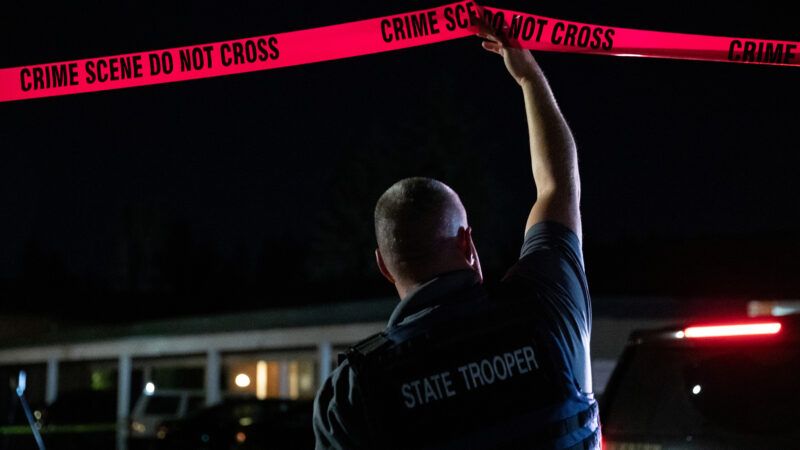I Asked for Public Records on a Fatal Police Shooting. Then a Washington Sheriff's Office Sued Me.
The move is similar to what's known as a "reverse FOIA" lawsuit, which forces the requester to go to court to defend his right to access public records.

A Washington state superior court judge issued a temporary restraining order Wednesday against the Washington Department of Corrections (DOC) and myself to block the release of public records regarding the fatal September 3 shooting of Michael Forest Reinoehl by a law enforcement task force.
The judge granted a motion filed Tuesday by the Thurston County Sheriff's Office (TCSO) seeking to temporarily enjoin the Washington DOC from releasing records to me on Reinoehl, who was killed by a fugitive task force composed of U.S. marshals and several Washington law enforcement agencies, including the Washington DOC.
Reinoehl, a self-proclaimed anti-fascist, was charged with second-degree murder in the August 29 shooting death of Patriot Prayer supporter Aaron Danielson in Portland. Reinoehl had been wanted for five days when a federal fugitive task force caught up with him in Lacey, Washington. The circumstances surrounding Reinoehl's shooting remain unclear. Task force agents said Reinoehl either pointed a gun or was in the process of drawing a gun when he was shot. However, civilian eyewitnesses said the police didn't announce themselves before unleashing a barrage of gunfire that killed Reinoehl. None of the law enforcement officers in the task force were wearing body cameras. In the final weeks of the 2020 presidential campaign, President Donald Trump frequently bragged about the killing.
On September 8, I filed public records requests to all the agencies in the task force for body camera footage, incident reports, and other documents related to the shootings. All of those agencies except the Washington DOC rejected the requests, citing the TCSO's ongoing homicide investigation. The TCSO was not part of the task force and is conducting an independent investigation into the incident.
On November 24, the Washington DOC notified me that it had collected responsive records, but due to the TCSO investigation, it would be notifying the sheriff's office before releasing anything.
In its Tuesday motion, the TCSO argued that the release of the records would "undermine the integrity of Thurston County's criminal investigation and irreparably damage vital governmental functions." The TCSO estimates that its investigation will take two more months.
The TCSO's lawsuit is similar to what's known as a "reverse FOIA" suit, an attempt by a government agency to force requesters to defend their right to access public records in court. As I wrote in a 2018 column with the unfortunately prescient headline "The Right to Know Might Get You Sued," more and more state and local agencies around the country have used this tactic to undermine transparency laws:
Unlike typical government stonewalling tactics, which put the onus on requesters to sue for records, these lawsuits instead make the information seekers bear the costs and time of going to trial to defend their right to know what their government is doing. This is an overt use of courts to drag more of the public business back into the shadows and enforce a type of sub rosa censorship.
The temporary restraining order bars the Washington DOC from releasing records to Reason until January 8, when the court will hold a hearing on a motion for a preliminary injunction.


Show Comments (69)